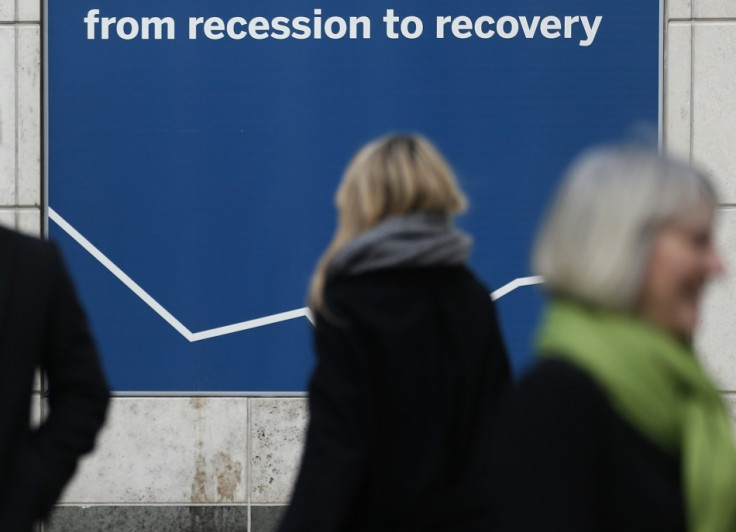UK Economic Recovery Gathers Pace in July

Britain's economic expansion quickened at the beginning of the third quarter amid encouraging data from the service, construction and manufacturing sectors.
The National Institute for Economic and Social Research (NIESR) calculates that the UK economy grew by 0.7% in the three months to July, after a 0.6% expansion in the quarter to June.
"These estimates suggest a narrowing of the UK's large negative output gap," said NIESR.
"Consumer spending growth has underpinned the recent gains in economic momentum, in spite of the continued decline of real consumer wages."
All three main sectors in the UK economy performed well in July and superseded expectations, according to private industry surveys.
The service sector, which accounts for around three-quarters of UK GDP, saw activity expand during July at its fastest pace since November 2006.
Manufacturing output soared to its highest level since February 2011, amid rising production, strengthening of new orders growth, increasing export orders, and cost inflation rising below the average rate.
Construction sector firms, which suffered a painful decline across the whole of 2012, reported output leaping to its highest level in more than three years in July, off the back of increased homebuilding.
NIESR predicts that a rise in consumer spending will lift the UK economy in the second half of 2013.
The think-tank forecasts 1.2% growth in 2013 and 1.8% in 2014, both 0.3% higher than previously predicted.
"The main cause of the improvement in the economic growth outlook is a rise in the prospects for consumer spending growth," said NIESR, though it added that it is "at the expense of household saving, rather than a consequence of rising real disposable incomes".
Consumers have been hit by a cocktail of underemployment, a stinging real-terms fall in pay and a rise in the cost of living. The Joseph Rowntree Foundation (JRF) calculates that the basic cost of living has risen 45% over a decade.
Household savings plunged to a five-year low in the first quarter of 2013, according to official figures, as Britons had less disposable income to put away and many were deterred by low interest rates.
NIESR said one of the risks to its forecast growth in the UK was a rise in interest rates, which would encourage more people to save rather than spend.
"In any case, while consumer spending growth is a necessary component of any recovery in the UK economy, a balanced recovery will require a significant contribution from net trade and gross fixed capital formation," said NIESR's report.
"We see relatively little sign of this as yet, with the current account deficit larger than in the decade before the onset of the Great Recession, and business investment volumes, remaining below 2007 levels until after 2017.
"An unbalanced recovery driven primarily by consumer spending [especially if accompanied by rising house prices] is worrying from a long-term perspective."
© Copyright IBTimes 2025. All rights reserved.






















